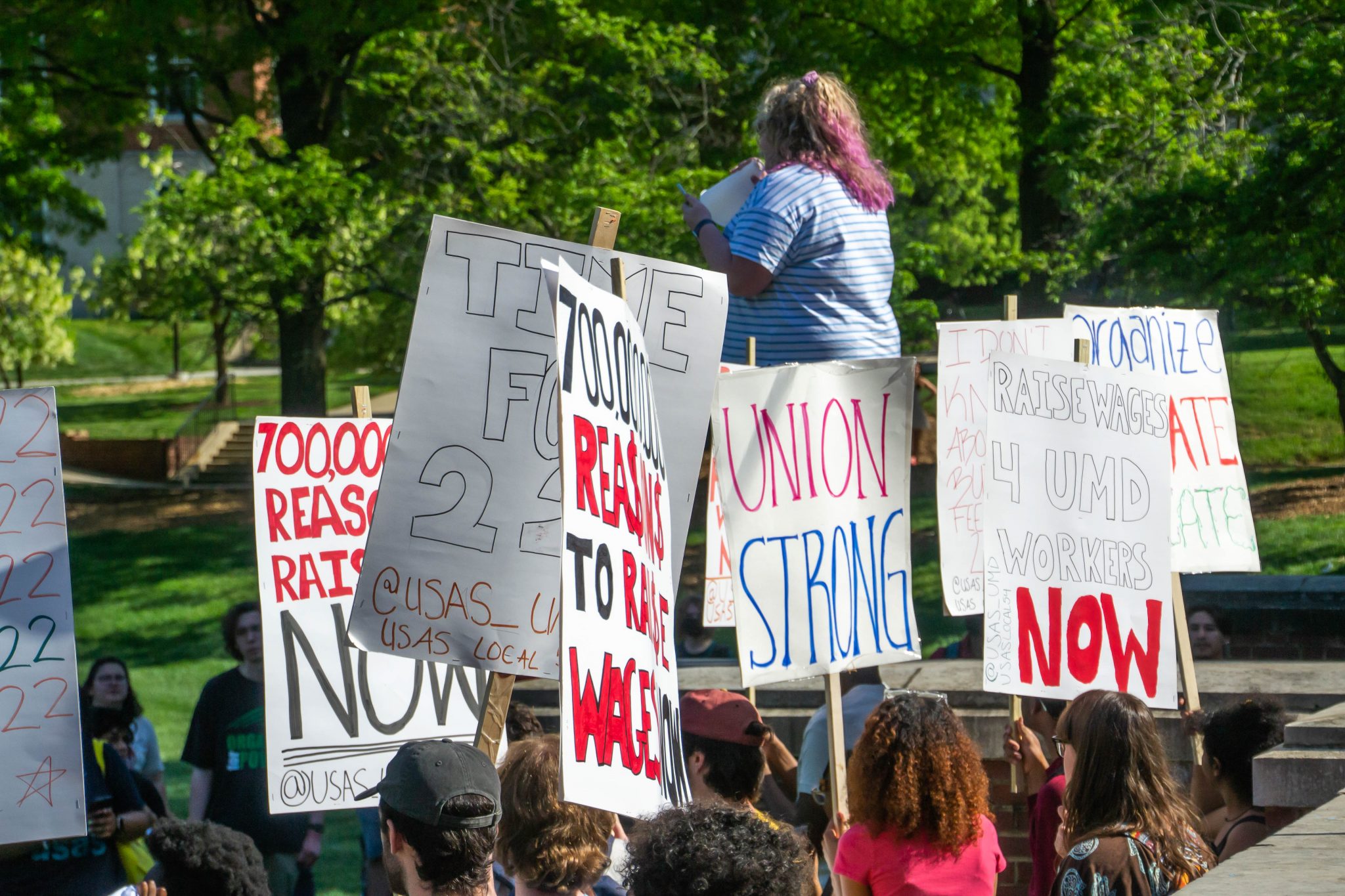University of Maryland student employees expressed concerns over work-life balance and inconsistent wages in a survey conducted by this university’s United Students Against Sweatshops chapter.
The anonymous survey investigated the experiences of student workers on campus. The survey questions spanned several topics, including the most challenging aspects of on-campus student-staffed jobs and changes students would like to see for these jobs.
Senior immersive media design major Grace Orellana, the president of this university’s USAS chapter, said the survey, which received more than 100 responses, aimed to gain insight into the student-worker experience at this university.
“We decided to put together this survey to give people a chance to voice their concerns in a place that doesn’t feel threatening,” Orellana said. “The survey is completely anonymous, so we thought it may be a way to get people to express how they’re feeling and see how we can help in return.”
According to Orellana, many students cited scheduling and communicating with their bosses as pressing issues. Some students said they were being scheduled to work too many hours, while others said they were not being scheduled for enough, she added.
“At $15/hr, after tax I need to work 22 hours a week to pay my rent with my job,” one survey response read. “As a student, I’m only allowed to work 20.”
[UMD employees feeling overworked in understaffed departments]
A resident assistant said they are on call “24/7”and that the role forces them to “live where [they] work.”
In an email to The Diamondback, this university declined to comment on the survey directly without “knowing more about its methodology and validity.” The university encourages student employees to “speak to their managing supervisors or university HR to discuss their concerns,” the email read.
RAs at this university have “several layers of professional support,” this university said.
“There is no expectation that an RA is on duty 24/7,” the email read. “RAs are also students themselves on the path to graduation, and supervisors help RAs prioritize the student role above the RA role.
Tafor Acho, a junior environmental science and technology major and resident assistant at Johnson-Whittle Hall, said he has struggled with balancing working and being a student.
“I feel like the worst part of being an RA a lot of the time is that you always have to do something at the worst possible moment,” Acho said. “So you could be actively studying or cramming or doing something for an exam, and you realize that you have to have your boards due or put out an event.”
Acho also noted that he finds it challenging to manage a floor of about 70 students, even with a co-RA.
“I think one change I would want to see is more sternness given to residents so it wouldn’t always fall on the RA to be the one to delineate,” Acho said.
RAs need more support from higher-ranking staff members, Acho added.
Like Acho, Orellana expressed frustrations about this university’s inaction toward understanding student-worker frustrations.
The initiative to gather feedback from student employees should have stemmed from university administration — not USAS, she said.
[UMD employees seek more remote working options, specific telework policies]
Other students also highlighted the inconsistencies in pay for on-campus jobs.
Nakati Sany, a junior cellular biology and genetics major, has been a teaching assistant in this university’s Gemstone Honors Program for three different courses.
Sany said that teaching assistant pay is too delayed, making the job less rewarding.
“I feel like if they had changed it to more of a weekly basis and took in those extra hours the TAs put in, I think the compensation would be more appealing,” Sany said.
RAs are also not paid by the hour and instead receive remission of housing, dining and basic telecommunication fees as compensation, according to the Department of Resident Life website.
Acho also works at Eppley Recreation Center where he is paid by the hour. He agreed with Sany that hourly wages are more appealing and incentivizing for students.
Moving forward, Orellana hopes to continue dialogue with this university about student employee concerns. She encouraged students to continue speaking out against workplace practices.
“I would just say that it’s important to talk about what you’re going through in a workplace because you’re not alone and we have more in common together as workers than we do apart.” Orellana said.



